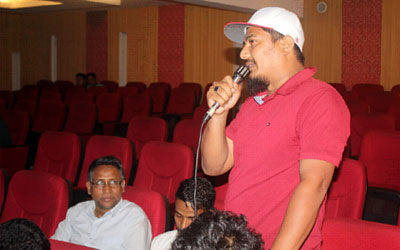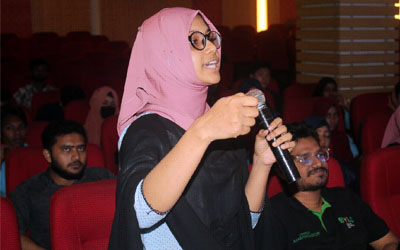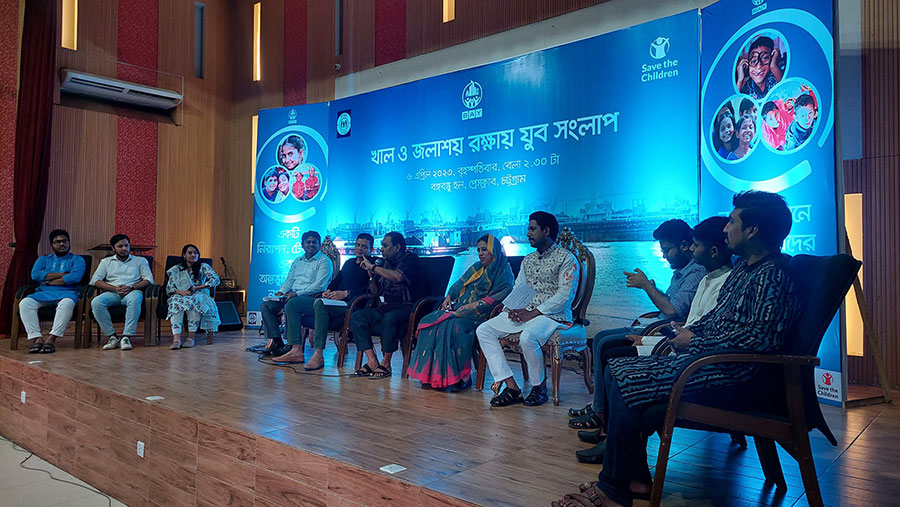
Bangladesh Alliance of Youth, a forum of youth organizations in Chattogram has organized a ‘Youth dialogue to protect canals and water bodies’ in an effort to take collective action to free the rivers, canals and waterways of Chattogram city from various pollutions. This dialogue was organized at Bangabandhu Hall of Chattogram Press Club on April 6 with the support of YPSA and Save the Children. Bangladesh Alliance of Youth Member Secretary and Purba President Sanatan Chakraborty Bijay conducted the event.
The former vice-chancellor of Chattogram University, Iftekhar Uddin Chowdhury was present as the chief guest during the event. He said, “Today’s youth dialogue will no doubt act as a collective voice for planned urban development and restoration of canals and water bodies in Chattogram. Special thanks to Bangladesh Alliance of Youth for this. The youth will act as guides of the port city.”
At this time, he also expressed his desire to hold a consultative meeting with the representatives of youth organizations with every service organization in the city. Besides, Chairman of Institute of Architects Chattogram Chapter and Board Member of Chattogram Development Authority (CDA) Architect Ashiq Imran, Former Councilor and Columnist Abida Azad were also present as special guests. More than hundred youth representatives from various educational institutions and youth organizations participated in the dialogue.
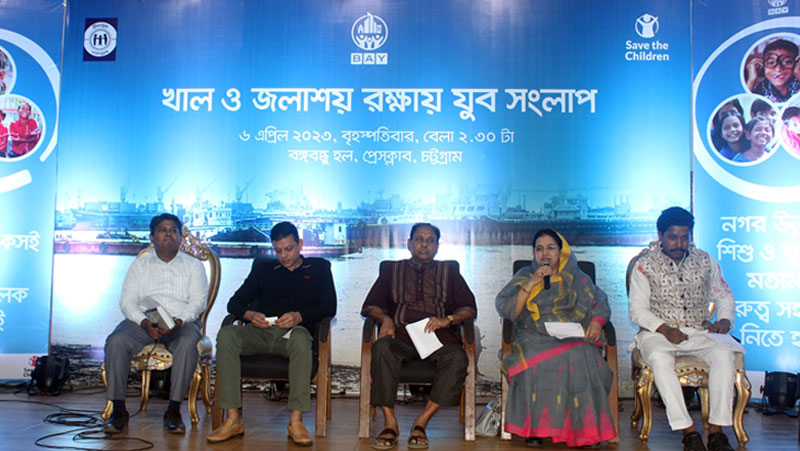
During the dialogue, youth panelists present on six topics to audience and participants joined the open dialogue. The six topics are: understanding the current state of Khal and Canals in Chattogram, identifying the sources and types of pollution in Khal and Canals, understanding the impact of pollution on the aquatic ecosystem and public health, exploring innovative solutions and best practices to mitigate pollution in Khal and Canals, identifying the roles and responsibilities of different stakeholders in protecting Khal and Canals from pollution, and identifying the roles and responsibilities of different stakeholders in protecting Khal and Canals from pollution.
At first, Yes Bangladesh Organizing Secretary Safayet Jamil Naushan discussed the current status of canals and reservoirs in Chattogram. He mentioned several casues of environment pollution through use of chamicals in agriculture, industrial waste mismanagement, and so on. About this OBAT Think Tank said, “industries are using 7-8 lakh taka worth polythin per day, whereas bag from jute and old cloth are cheaper. We initiae to make such bags and through this network we want everyone’s collaboration to this initiative.”
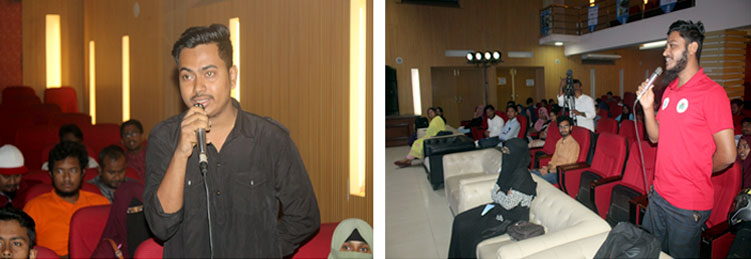
Next, Alor Majhi President Shaukat Jamil Sourav spoke about the identification of sources and types of pollution in canals and reservoirs. He said there are only 57 active canals exist in Chattogram which are at very risk of extinct and vulnerable to urba people. Because in rainy season canals and roads can not be identified, those become water logged due to wastes clogged. Therefore, everyone’s cooperation is high priority to save canals and save ourselves from waterlogging. President of Jagroto Zubo Songho added to Alor Majhi President with real life experience. He said, “I live just beside Char Chaktai Canal which is famous as the sorrow of Chattogram. I experience everyday how careless people are in throwing waste and plastic in canal and how the canal is breathing to its last days. In rainy season people suffers at most due to water logging.”
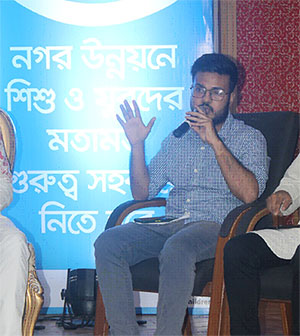 Finance Secretary Waresul Jannat (Anika) of Team Chittagong discussed the impact of pollution on aquatic ecosystems and public health. She mentioned, “waterlife is drastically damaging due to water pollution. As a result, quality of drinking water gets damaged, food chain is hampered and contagious disease spreads. According to research, 9 harmful chamichals ware invaded in 2008 whereas 7 among them are still in practice and polluting environment.” Another participant, Urban Community Volunteer, Shahadat Hossain said, Tripura and Shitoljhorna Canal get hard from waste as children start playing onto it. Moreover, Tokais collect waste things to sell as their livelihood which is very hazardous for their health, specially skin. Many children are facing severe skin disease.
Finance Secretary Waresul Jannat (Anika) of Team Chittagong discussed the impact of pollution on aquatic ecosystems and public health. She mentioned, “waterlife is drastically damaging due to water pollution. As a result, quality of drinking water gets damaged, food chain is hampered and contagious disease spreads. According to research, 9 harmful chamichals ware invaded in 2008 whereas 7 among them are still in practice and polluting environment.” Another participant, Urban Community Volunteer, Shahadat Hossain said, Tripura and Shitoljhorna Canal get hard from waste as children start playing onto it. Moreover, Tokais collect waste things to sell as their livelihood which is very hazardous for their health, specially skin. Many children are facing severe skin disease.
Chittagong University Debating Society (CUDS) President Kayes Md. spoke about innovative solutions to reduce pollution in canals and water bodies. He listed few as follows:
- Prepare stakeholder mapping an d involve them in planning and intervention
- Initiate waste water management to separate pure and waste water to solve water crisis
- Organize farmers under eco-friendly agricultural management system, so that they can find alternative to harmful chamicals
- Innovative ways to recycle industrial waste to profit
- Initiate regular innovative campaign to aware and clean canals
- Advocacy for policy reformation and implementation of laws must
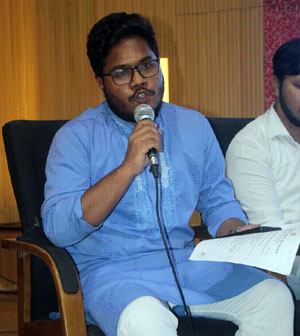 At last, Saifullah, Vice President of Youth Voice of Chittagong Mohammad Abdul Aziz spoke about identifying the roles and responsibilities of various stakeholders in protecting canals and water bodies, Positive Thinkers President Mr. Ziku Chowdhury added to the discussion about specific joint action plans to protect canals and water bodies.
At last, Saifullah, Vice President of Youth Voice of Chittagong Mohammad Abdul Aziz spoke about identifying the roles and responsibilities of various stakeholders in protecting canals and water bodies, Positive Thinkers President Mr. Ziku Chowdhury added to the discussion about specific joint action plans to protect canals and water bodies.
At the end of the dialogue participants decided to prepare next action plan as a network to run advocacy with every stakeholders of Chattogram under the direction of The former vice-chancellor of Chattogram.

